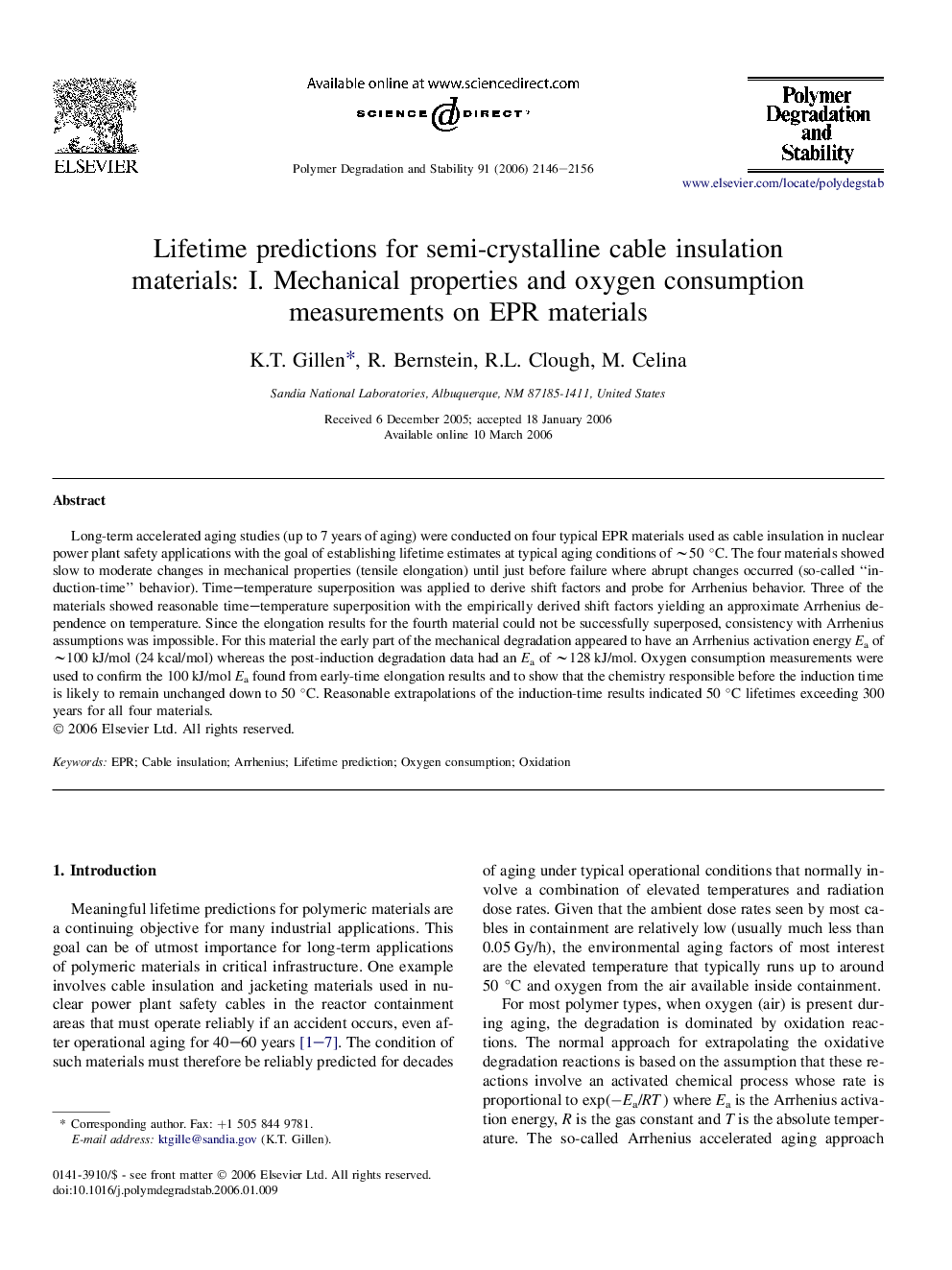| Article ID | Journal | Published Year | Pages | File Type |
|---|---|---|---|---|
| 5204584 | Polymer Degradation and Stability | 2006 | 11 Pages |
Abstract
Long-term accelerated aging studies (up to 7 years of aging) were conducted on four typical EPR materials used as cable insulation in nuclear power plant safety applications with the goal of establishing lifetime estimates at typical aging conditions of â¼50 °C. The four materials showed slow to moderate changes in mechanical properties (tensile elongation) until just before failure where abrupt changes occurred (so-called “induction-time” behavior). Time-temperature superposition was applied to derive shift factors and probe for Arrhenius behavior. Three of the materials showed reasonable time-temperature superposition with the empirically derived shift factors yielding an approximate Arrhenius dependence on temperature. Since the elongation results for the fourth material could not be successfully superposed, consistency with Arrhenius assumptions was impossible. For this material the early part of the mechanical degradation appeared to have an Arrhenius activation energy Ea of â¼100 kJ/mol (24 kcal/mol) whereas the post-induction degradation data had an Ea of â¼128 kJ/mol. Oxygen consumption measurements were used to confirm the 100 kJ/mol Ea found from early-time elongation results and to show that the chemistry responsible before the induction time is likely to remain unchanged down to 50 °C. Reasonable extrapolations of the induction-time results indicated 50 °C lifetimes exceeding 300 years for all four materials.
Related Topics
Physical Sciences and Engineering
Chemistry
Organic Chemistry
Authors
K.T. Gillen, R. Bernstein, R.L. Clough, M. Celina,
